RACHMANINOV TROIKA, 2015
Sergei Rachmaninov
La Monnaie/De Munt
Staging by Hotel Pro Forma
La Monnaie/De Munt
Staging by Hotel Pro Forma
CONDUCTOR:
Mikhail TatarnikovDIRECTOR:
Kirsten DehlholmCO-DIRECTOR:
Jon R. SkulbergSCENOGRAPHY:
Maja ZiskaLIGHT:
Jesper KongshaugCOSTUME/HAIR/MAKE-UP:
Manon KündigVIDEO DESIGN:
Magnus Pind BjerreDRAMATURGY:
Krystian LadaThe opera house La Monnaie de Munt in Brussels played Rachmaninov Troika in June, 2015. Rachmaninov's three operas, Aleko, The Miserly Knight and Francesca da Rimini were for the first time ever performed together in one row.
Rachmaninov Troika is the first project to be presented outside La Monnaie´s opera house, while it is being renovated. The performances took place at Théâtre National. This has enabled the artistic team of Hotel Pro Forma to create a site-specific scenography suited to the Théâtre National’s imposing interior.
Rachmaninov Troika begins with Aleko. Aleko as opera and theatre. The space is deep. A colourful narrative.
The Miserly Knight follows. Opera as architecture. The staircase is invisible, the space is flat. Five soloists are on the forestage, with filmed architecture as the background.
Franceska concludes the Troika. It is opera as image. Once again the space is deep. We find ourselves in the underworld. All colours have vanished, everything is in black and white, light and dark, shadows in the wind.
REVIEWS:
Forumopera.com
Even though The Troika lasts almost four hours, any sense of time and reality vanishes, and one feels transported to a place where beauty and art (…) weave the material of which stars are made.
Le Soir, Belgium
a visual, formal score, an emotional piece of music, which opens up the field and unleashes the frames of interpretation
De Tijd, Belgium
The beautiful visual staging and Rachmaninov’s music exalt banality to art.
Weekendavisen, Denmark
…But what is completely successful, on the other hand, in the nucleus of all the visual splendour, the richness of ideas and cosmic sense of space is the showing of the basic emotions involved: falling in love, jealously, forgiveness, avarice, feelings of inferiority, rebellion against parents, malicious pleasure and, in Francesca di Rimini, even undeserved perdition. All of these dramas need little more than a movement of the hand, a step to one side, a look or a touch for the basic meaning and underlying emotions to be blazingly clear and universal. …. Other operas from Mozart to Richard Strauss one can still only dream of seeing being checked in (at Hotel Pro Forma). For the actual work will hardly be recognizable again afterwards. At any rate, it will be impossible from now on not to consider Rachmaninov’s three apparently separate small works as one unified work of art.
Projects
-
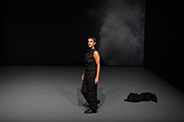
For Ever Four Seasons
-
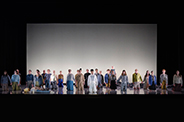
We - an unknown opera by Bach?
-
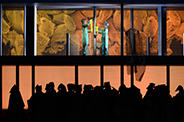
Vespertine
-
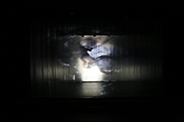
Den 4. morgen
-

Madama Butterfly
-
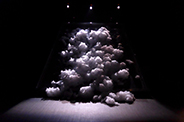
Stammen
-
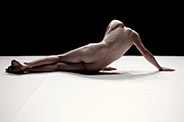
Everything remains
-
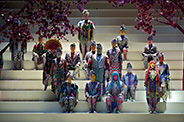
RACHMANINOV TROIKA
-
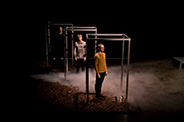
Forestillingen om en historie
-
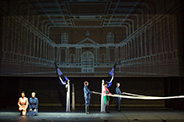
Rienzi. Rise and Fall
-
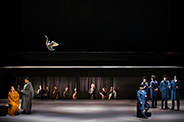
Parsifal
-
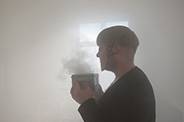
Vrrh Ssch Ssch
-

Henrik Vibskov Boutique
“The Match Box” 
Everything ends
with flowers
Convey

Thinking Rabbit
on a Stone
Jeg bliver ved med
at komme tilbage
Heimat

lette

memoread
